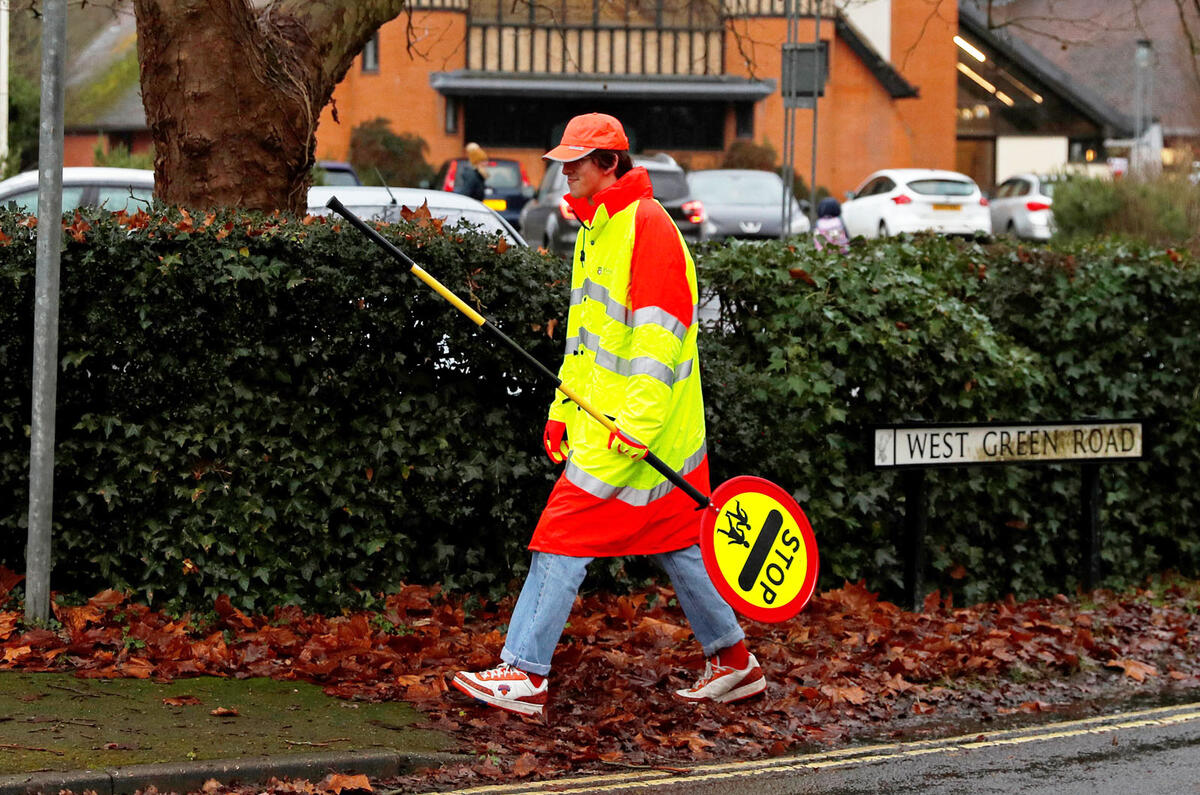Families across the UK are campaigning to stem the decline in school crossing patrol officers, otherwise known as lollipop men and women, in the face of council cutbacks.
They argue the roles are still needed, given that new police data released in June reported that 413 pedestrians were killed in 2024, an increase of 2% compared with 2023, amounting to a quarter of all road-related deaths. People aged 16 years and under accounted for 4% of these deaths and 10% of those injured.
The figures have been released against a background of reductions in school crossing patrols, the numbers of which have halved in the past 10 years but which their supporters insist make roads safer for children.
Croydon Council is one of the latest to scrap its lollipop patrollers, with schools losing them at the end of the current term.
“This decision leaves me worried for the future safety of our children,” said a parent of children attending one of the six affected schools. “The presence of lollipop men and women is essential.”
A Croydon Council spokesperson said “most patrols were phased out many years ago” and risk assessments for the remaining sites will result in a new permanent crossing at one and temporary crossings at three more.
Elsewhere, alarmed by the withdrawal of their schools’ crossing officers, concerned parents around the country have taken to campaign platforms to rally support for their reinstatement.
Among them is one to save the crossing officer at Dalbeattie High School near Dumfries in Scotland, which also has a nursery and a primary school nearby.
Diana Finnigan, whose 10-year-old grandson attends the primary school, is opposing the council’s decision to withdraw crossing staff and has started an online petition that has so far attracted 500 signatures.
“I live close to the school and see every day how dangerous the roads outside it are for children,” she said. “Local councillors say the children can use the light-controlled crossings but you can’t assume every child, especially young ones, will. Some just ignore the lights and dash across, risking their lives. I’ve seen cars jump the lights too.”
A spokesman for Dumfries and Galloway Council confi rmed its intention to withdraw crossing patrol officers from the school. “Elected members of the council chose to remove crossing patrol staff from automated crossings,” he said. “Council offi cers are preparing communications so that parents and carers are aware of the changes.”
This month, road safety charity Brake highlighted that 16 primary school-age children are harmed on UK roads every day and called for a blanket 20mph speed limit outside schools.
However, while accepting that crossing patrols can play a vital role in keeping children safe, Brake campaigns manager Luca Straker said what mattered more was ensuring safety measures are in place.
“One of the key elements of road safety for schools is having safe places to cross,” said Straker. “That could be crossing patrols, it could be fi xed crossings, but what we need to ensure is that there is something in place that enables children to cross the road safely.”




Join the debate
Add your comment
Even if we ignore the road safety of children (insane that we should have to), how much do Lollipop ladies/men cost? They work 2, maybe 3 hours a day at close to minimum wage, so a tiny fraction of total budgets of Local Authorities, close to irrelevant.
Cynically I'd suggest its a role that LAs have identified that decent minded members of society may likely volunteer for, so paying is unnecessary
Crossing where you knew you'd get across relatively safely and not have to wait five minutes or more to cross was the main reason I did it all my School life,it was a social thing too, you chatted to other parents,maybe took there kids to school if they couldn't manage for whatever reason,nowadays everybody seems to in a hurry no time to waste etc,and as you said for the few hours they work isn't going to make any difference to a council budget.